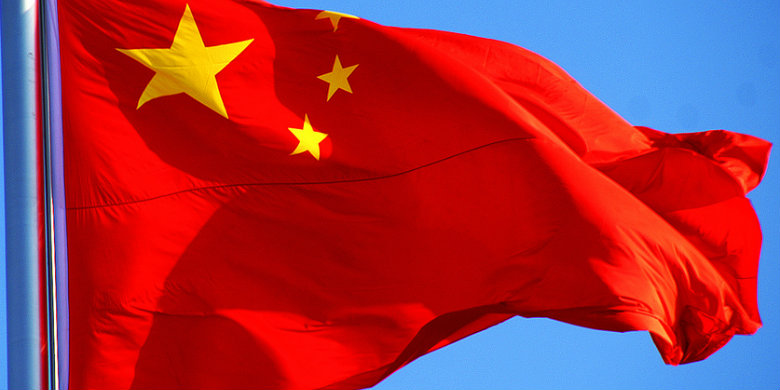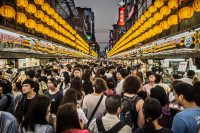
Börje Ljunggren, tidigare ambassadör i Kina, skriver om hur XI Jinping drömmer om att reformera en ekonomi där politiken inte är ur spår.
China’s transition to power of a new leadership team was completed March 14. But President Xi Jinping put his individual stamp on his leadership mission already in late November, shortly after assuming the mantle as new party secretary. Accompanied by the entire Standing Committee, followed by camera, he toured the National Museum with its huge exhibition on “The Road of Rejuvenation.” This unreformed propaganda projection of China since the era of national humiliation begun in the 1840s helped provide the backdrop for his mission to “achieve the Chinese dream of rejuvenation of the Chinese nation.”
In acquiring all three levers of power, as party secretary, chairman of the central military commission and president, Xi has emerged with significantly more authority than his predecessor Hu Jintao did when assuming power. Xi’s personal charisma also stands in striking contrast to the uninspiring style of Hu, clearly less comfortable in the role. Xi, a self-confident “princeling” as children of senior party officials are called, sees himself as destined to lead China and not as another transitional leader. He is likely to appeal to the domestic audience with his “China dream” and personal charisma while demonstrating China’s power on the world stage. He does not want China to remain what scholar David Shambaugh has called a “partial power.”
Xi’s grand ambition will be tempered by the enormity of the tasks ahead. He must hold together a group of experienced party movers with no common notion of where to go. What they do share is a set of huge challenges. China’s GDP is more than three times larger today than when Hu came to power. Still, paradoxically, the Hu era is seen as a “lost decade.” Chinese society has changed much faster than the party and its ability to deal with vested interests, corruption and pollution are questioned like never before.
Xi clearly wants China to go its own way. Reforms should continue, but within the framework of the party-state. Ideas about China’s rejuvenation, as once articulated by Sun Yat-sen, are taken further than by any other post-Mao predecessor. The celebration in 2021 of the 100thanniversary of the party, with Xi at the helm, should be a glorious event – with attention shifted from the country’s mounting sense of crisis to a nationalistic project highlighting China’s reemergence as a country that deserves due respect from the outside world, ready to interact with the US as an equal partner in a “major power relationship” and with Japan and other neighbors as the ultimate regional power. But Xi is launching China by an assertive course and China risks becoming a lonely power.Xi has used his first four months as the party leader proactively, introducing austerity measures on the party elite; making corruption a life-and-death issue of the party, as did Hu with unremarkable effect; traveling to Shenzhen in the footsteps of Deng Xiaoping and his 1992 southern journey for signaling determination to pursue economic reforms; launching a streamlining of the administration, making clear that the People’s Liberation Army must remain a “party army” and never to be “nationalized” as done by Gorbachev’s Soviet Union; standing firm on the maritime conflicts in the East and South China Seas. Not least, Xi emphasizes “the China dream” and China’s renaissance as a central theme.
Underneath all the assertiveness, lies a profound uncertainty about how to cope with the multiple challenges demanding firm, immediate action. Xi wants to be seen as a man who can deliver, but is at the same time determined to maintain the power monopoly of a party increasingly seen as corrupt, with the families of central leaders, including his own, having amassed extensive wealth and local leaders being preoccupied with land-grabbing and obsessed with investment- driven growth. Individually, many party leaders know that current “growthism” has run its course. Urban China increasingly is concerned that the country is approaching a tipping point as their children’s future is endangered by pollution.
Wang Qishan, former vice premier known for his efficiency, has a key role as Standing Committee member in charge of the Central Commission for Disciplinary Inspection, a true party body. Acting in the spirit of the party-state follows from the institutional logic of the system, curtailing the legal system. Xi refers to the Chinese Constitution, but in his vision, China should build “constitutional socialism with Chinese characteristics,” and the writ of law would then be determined by the party. Political reform is caught in a cage.The party has an existential dilemma. Can Xi and his team rise above huge vested interests of the party and fight corruption in a systemic way rather than case by case? Will the disciplinary machinery of the party be entirely in charge, or will the legal system be allowed to develop its own integrity? The party’s inclination to keep the legal system within the party realm, with every court having a party cell, will severely restrain reform.
While Xi is projecting an image of a more powerful China, Premier Li Keqiang, perceived as a talented but somewhat weak technocrat, is defining a role for himself as a reformer of the bureaucracy and the economy. The relationship between him and Xi is likely to be more unbalanced than that between Hu Jintao and Wen Jiabao. Li’s “China dream” seems much less grand and much more pragmatic, less focused on national strength in terms of power and more on maintaining high growth while reducing disparities.
The economy is the area where reforms are most likely. Critical tests include whether the huge state-owned enterprises, or SOEs, become less of shielded empires; whether the potential of the private business is realized; and most importantly, whether the environment is no longer treated as a residual. Urbanization is his key recipe. Today’s urbanization, however, is a huge part of the problem, and Xi must show he can turn around that development.
Deng Xiaoping’s “reform and opening” has brought China a long way. Now is the time for a “China dream” that goes beyond ending the era of humiliation and places China on a sustainable path to modernity as a respected member of the world community.Xi’s ambition is to build a stronger China, but real strength can only be built on a comprehensive reform agenda that convincingly rebalances the Chinese economy away from its current extreme dependence on physical investments, elevates the environment to the top of the agenda, takes on the vested interests of the state- owned enterprise sector, fights corruption with legal rather than internal party means, recognizes that political reform is about more than intraparty reform, invests in the development of a more equitable China, commits itself to putting relations with the United States on a new footing, uses China’s regional power to resolve rather than aggravate maritime disputes and helps reignite multilateral trade talks to put the world economy back on a growth track.
Börje Ljunggren
F.d. ambassadör i Kina och författare till boken ”Kina – vår tids drama”.
This text was previously published by Yale Global Online and is republished wind the kind approval of Yale Global and the author.
Följ Dagens Arena på Facebook och Twitter, och prenumerera på vårt nyhetsbrev för att ta del av granskande journalistik, nyheter, opinion och fördjupning.

































